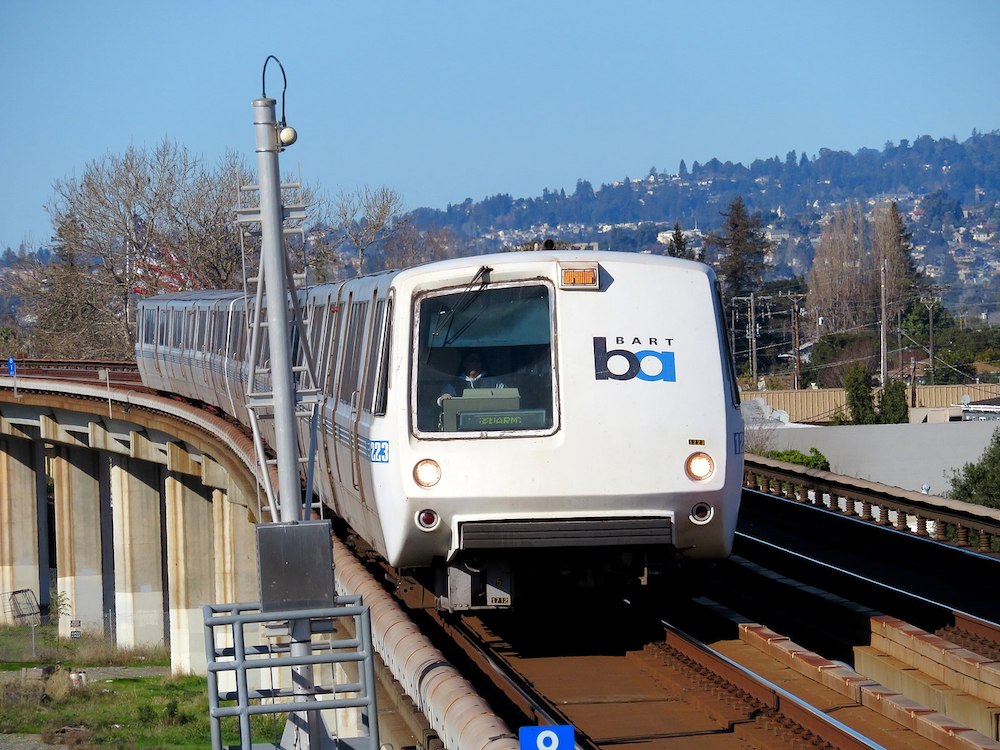The law will both save BART significant resources and have a positive impact on the environment, says Assemblywoman Buffy Wicks, the bill’s author.
A bill signed into law Friday by Gov. Gavin Newsom will give BART unrestricted access to California’s wholesale energy markets, helping that transit agency meet its commitment to a clean, 100-percent renewable electric supply by 2045.
Assembly Bill 923, authored by Assemblywoman Buffy Wicks, D-Oakland, is also designed to give BART broader access to more diverse sources of greenhouse gas-free energy sources.
The new law could save BART an estimated $415,000 to $1.2 million per year without increasing costs to the state or other market participants, BART officials say.
Unrestricted access to wholesale electric markets will allow BART to balance its intermittent renewable generation from solar, wind and small hydroelectric sources reliably and economically. This new authority is critically important now, BART says, as the transit agency prepares to bring online two wholesale renewable projects in 2021 that together will supply approximately 80 percent of BART’s annual electric needs.
BART’s trains are, of course, powered by electricity. “As one of Northern California’s largest end users of energy, it’s our responsibility at BART to be leaders in the use of environmentally-responsible electricity,” BART board president Bevan Dufty said in a statement. In that same statement, Wicks noted that AB 923 is her first bill signed into law.
“This law will both save BART significant resources and have a positive impact on the environment by giving BART access to more clean energy sources, making it a win-win.”
Assemblywoman Buffy Wicks, D-Oakland (AB 923 is her first bill signed into law)
The BART board in 2017 adopted a Wholesale Electricity Portfolio Policy that includes a commitment to meet or exceed the state’s clean energy policy goals.
At the same time, BART’s demand for electricity is projected to grow; BART’s Silicon Valley extension and the modernization of BART’s train control system are expected to increase BART’s electric needs by as much as 20 percent in the near future.
The transportation sector accounts for approximately 40 percent of the state’s greenhouse gas emissions.
As a transit agency, BART’s clean energy commitments contribute directly to advancing California’s long-term goals to reduce carbon generated by transportation. Provisions within AB 923 will take effect Jan. 1.
